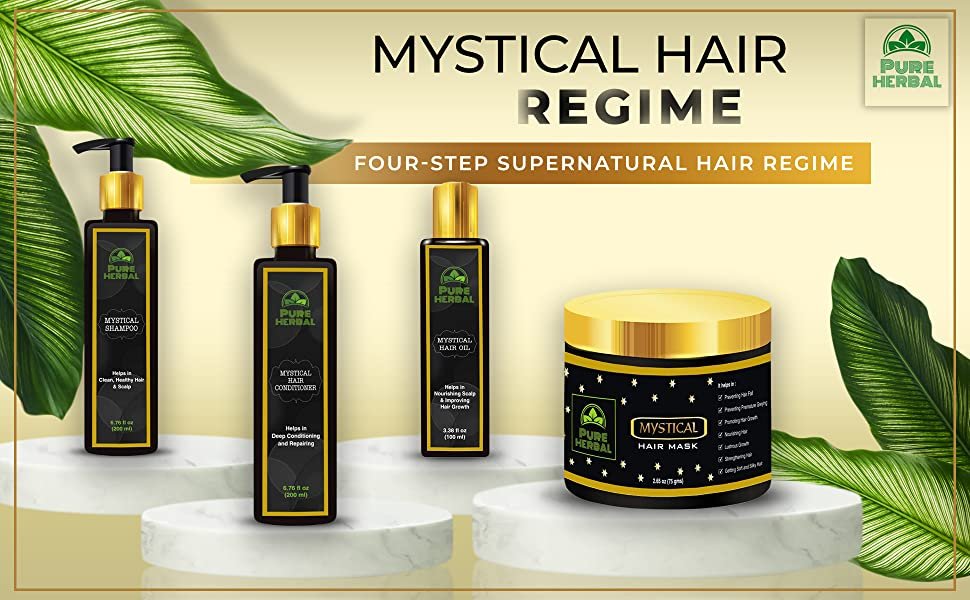In today’s world, where social media and online influencers dominate our screens, it’s hard to miss the buzz around mystical hair supplements. Promoted as miracle solutions for hair growth, these products promise luscious, strong, and voluminous hair. But behind the glossy advertisements and glowing testimonials lies an important question: Can these mystical hair supplements cause side effects?
Hair supplements, especially those marketed as “all-natural” or “magical,” have gained immense popularity. However, like any health-related product, they can carry risks. In this article, we will dive deep into understanding what mystical hair supplements are, how they work, and whether they could potentially cause side effects.
What Are Mystical Hair Supplements?
Mystical hair supplements are often marketed as dietary or herbal products designed to promote hair growth, strengthen hair, or prevent hair loss. These products frequently include a blend of vitamins, minerals, and herbs touted for their supposed ability to boost hair health. Some common ingredients include:
- Biotin (Vitamin B7): Known to support hair and nail growth.
- Vitamin E: An antioxidant that can improve scalp health.
- Collagen: Often included for its ability to improve hair structure.
- Saw Palmetto: An herb believed to prevent hair thinning.
- Keratin: A protein that is essential for hair structure.
Many mystical supplements claim to deliver almost magical results, often using words like “miraculous,” “transformation,” or “overnight growth.” But despite these claims, there are important factors to consider before jumping on the hair supplement bandwagon.
How Do Hair Supplements Work?
Hair supplements generally work by providing the body with nutrients thought to support hair health. Hair, like other parts of the body, requires essential nutrients for growth and strength. The idea behind supplements is that if you have any deficiencies in these vitamins or minerals, your hair might suffer, leading to weak strands, split ends, or even hair loss.
When someone takes a hair supplement, they are essentially replenishing any potential nutrient gaps that could be affecting their hair’s vitality. Sounds great, right? However, there’s more to the story.
Can Hair Supplements Cause Side Effects?
Although hair supplements are widely available and often perceived as safe, they are not without potential risks. Just because something is labeled as “natural” doesn’t mean it’s completely harmless. Let’s explore some of the potential side effects associated with mystical hair supplements.
1. Allergic Reactions
One of the most common risks when taking supplements is the possibility of allergic reactions. Ingredients like herbs, plant extracts, and certain proteins (like keratin or collagen) can trigger allergies in some individuals. Symptoms might include skin rashes, hives, swelling, or difficulty breathing. It’s crucial always to check the ingredient list and consult a healthcare professional before trying any new supplement.
2. Overdose Of Vitamins
Hair supplements often contain high doses of vitamins like biotin and vitamin A. While these vitamins are important in moderate amounts, excessive consumption can lead to adverse effects. For instance:
- Excessive Biotin: Although biotin is water-soluble and typically considered safe, extremely high levels can interfere with lab tests, leading to false results. This is particularly concerning for tests related to thyroid or heart function.
- Too Much Vitamin A: Overconsumption of vitamin A can lead to toxicity, causing symptoms such as nausea, headaches, dizziness, and even hair loss—the very problem you were trying to fix!
3. Hormonal Imbalances
Some hair supplements include ingredients like saw palmetto, which is believed to affect hormonal balance. While saw palmetto may block the production of DHT (a hormone linked to hair loss), it can also potentially cause hormonal imbalances in the body. For men, this might lead to issues like decreased libido or erectile dysfunction. In women, it could affect menstrual cycles or lead to other hormonal disruptions.
4. Digestive Issues
Many people experience digestive discomfort when taking supplements. Ingredients like collagen or certain herbs may upset the stomach, causing nausea, bloating, or diarrhea. Additionally, high doses of certain vitamins, especially fat-soluble ones like vitamin E, can lead to gastrointestinal issues if not taken correctly.
5. Interaction With Medications
Another important consideration is how mystical hair supplements interact with medications. For example, biotin can interfere with lab tests, while other ingredients might reduce or amplify the effects of prescribed drugs. This can be particularly risky for individuals taking medications for blood pressure, cholesterol, or other chronic conditions. Always talk to your doctor before starting a new supplement if you are on any medication.
The Role Of Individual Body Chemistry
It is critical to realize that each person’s body reacts to supplements in a unique way. Some people might take hair supplements with no noticeable issues, while others could experience side effects. Factors like genetics, pre-existing health conditions, and lifestyle can all influence how well your body tolerates a product.
Are There Any Safe Alternatives?
If you’re concerned about potential side effects but still want to improve your hair’s health, there are safer alternatives to consider:
-
A Balanced Diet:
One of the best ways to support hair growth is through a nutritious diet. Foods rich in omega-3 fatty acids, protein, vitamins, and minerals can naturally strengthen your hair.
-
Topical Treatments:
Instead of ingesting supplements, consider using topical treatments like serums or oils that are directly applied to the scalp. Ingredients like peppermint oil, rosemary oil, or castor oil have been linked to hair health without the risk of systemic side effects.
-
Regular Scalp Care:
Proper scalp hygiene, such as regular washing and gentle massaging, can also boost hair growth by improving circulation to the hair follicles.
When Should You Consult A Doctor?
If you’re experiencing significant hair loss, brittle hair, or scalp issues, it’s always best to consult a healthcare professional before trying any new supplement. Hair loss or thinning can be caused by underlying conditions like thyroid issues, anemia, or hormonal imbalances, and taking supplements without addressing the root cause could lead to further complications.
